Providing Hope: The Role of Evangelical Pastors in Crisis-Hit Venezuela
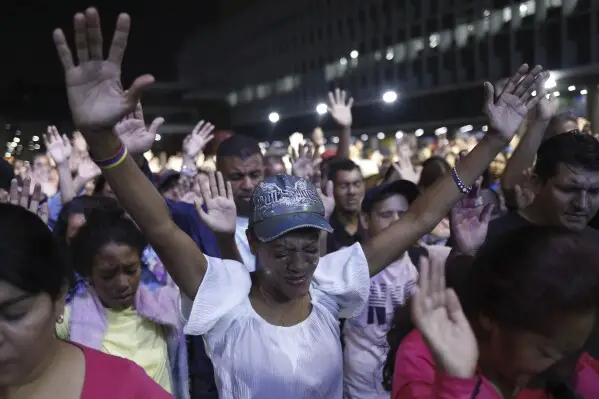
Evangelical Pastors in Crisis-Hit Venezuela
Introduction to the Venezuelan Crisis
The crisis in Venezuela has reached alarming levels, characterized by a multifaceted humanitarian emergency, rampant inflation, and political instability that have significantly impacted the country’s populace. Since the year 2013, the nation has witnessed an overwhelming decline in economic conditions, with the International Monetary Fund (IMF) estimating that the economy contracted by approximately 80% over the past decade. Hyperinflation has rendered the local currency almost worthless, leading to soaring prices for essential goods, wherein a basic meal may cost upwards of several hundred thousand bolivars.
The political landscape has been marked by authoritarianism and a lack of democratic processes. The government’s grip on power has intensified, especially after the disputed elections of 2018, which resulted in Nicolás Maduro being re-elected amidst international condemnation and allegations of electoral fraud. This has led to a fractured society, with various factions vying for power, effectively paralyzing governance and resulting in a lack of public services, including healthcare and education. Further complicating matters, the Venezuelan National Assembly has faced severe restrictions, undermining its ability to offer checks on governmental power.
As of 2023, nearly 7.1 million people have fled the country, seeking refuge in neighboring nations and further exacerbating the regional migration crisis. Among those remaining, an estimated 90% of the population lives in poverty, struggling to meet basic needs. Various reports illustrate that malnutrition rates have soared, with children being disproportionately affected. In rural areas and impoverished urban neighborhoods, access to clean water and safe sanitation facilities has diminished, leading to a public health catastrophe.
Against this dire backdrop, evangelical pastors play a pivotal role, providing not only spiritual guidance but also essential support and resources to those affected by the crisis. The humanitarian efforts initiated by these religious leaders are crucial in addressing the immediate challenges faced by their communities, fostering a sense of hope amidst overwhelming adversity.
The Role of Evangelical Churches in Venezuela
Over the past few decades, evangelical churches in Venezuela have experienced significant growth, becoming a cornerstone of community support and spiritual guidance amid a challenging socio-economic landscape. This expansion reflects a broader trend of increasing evangelical influence in Latin America, where faith communities have been pivotal in addressing societal needs. In Venezuela, these churches provide a critical social safety net, particularly during periods of crisis characterized by political instability and economic hardship.
Evangelical churches in Venezuela are distinguished not only by their doctrinal beliefs but also by their commitment to social justice and community engagement. Many of these congregations have initiated various outreach programs aimed at addressing acute needs such as food insecurity, healthcare access, and educational support. These initiatives often respond to the urgent requirements of vulnerable populations, providing essential resources and services that may be lacking in the broader public infrastructure. This community-centric approach has fostered strong bonds among congregants and has positioned the church as a crucial ally in navigating life’s challenges.
Moreover, the leadership within these evangelical communities tends to prioritize collaboration and inclusivity, working alongside other faith-based organizations and NGOs. Such partnerships enhance the effectiveness of their outreach efforts and extend their reach into diverse neighborhoods. The emphasis on collective action exemplifies the core pillars of evangelicalism in Venezuela: faith, service, and transformation. These churches not only offer spiritual nourishment but also embody hope, resilience, and solidarity for many Venezuelans navigating the complexities of their circumstances.
In the face of adversity, the role of evangelical churches in Venezuela highlights their unwavering commitment to providing essential support and fostering a sense of community among their members. Their influence and dedication underscore the vital role these institutions play in the fabric of Venezuelan society today.

Spiritual Comfort: How Pastors Support Congregants
Evangelical pastors play a crucial role in providing spiritual comfort to their congregants, particularly during times of crisis in Venezuela. In a context marked by socio-economic instability, political turmoil, and widespread uncertainty, these religious leaders become pillars of support. One of the primary ways pastors offer spiritual care is through preaching, which serves not only to educate but also to inspire hope among their congregations. Sermons often incorporate themes of resilience, divine providence, and the importance of community, reinforcing a collective sense of purpose and belonging.
In addition to preaching, pastors frequently organize prayer meetings—both in-person and virtually—where congregants can come together to express their concerns, share prayer requests, and find solace in communal faith. These gatherings are particularly significant as they foster a sense of community, enabling individuals to connect with others who are grappling with similar fears and uncertainties. Pastoral leaders often stress the power of prayer as a transformative tool to bring peace in tumultuous times. This emphasized connection to God serves as an anchor for many facing overwhelming challenges.
Moreover, evangelical pastors engage in one-on-one counseling, offering personalized support tailored to the needs of individuals. This aspect of pastoral care involves empathetic listening and guidance, helping congregants navigate their emotional struggles, such as anxiety and grief. By creating a safe environment for open dialogue, pastors can encourage congregants to share their burdens, facilitating emotional healing. The role of pastors extends beyond spiritual guidance; they become trusted confidants and counselors, reinforcing the importance of mental health care in the broader context of spiritual well-being.
Overall, through preaching, prayer meetings, and counseling, evangelical pastors provide essential emotional and psychological support to their congregations in Venezuela, embodying hope amid hardships.
Community Mobilization and Support Services
In the face of overwhelming challenges, evangelical churches in Venezuela have emerged as pivotal institutions in mobilizing communities to provide essential support services. Given the dire circumstances, pastors have taken the lead in organizing initiatives that address immediate needs, including food distribution, healthcare services, and shelter for those who have been displaced. These initiatives are not only acts of charity but also reflections of a deep-rooted commitment to the well-being of their congregations and surrounding communities.
Food distribution programs are among the most critical services offered by these churches. Many community members, faced with severe food shortages, rely on the initiatives spearheaded by pastors to access basic nutrition. Evangelical congregations have established food banks and collaborative efforts with local farmers and businesses to gather resources. The act of sharing food fosters a sense of togetherness and reinforces the bonds of solidarity that are essential during crises. Pastors play a critical role in ensuring that these programs are carried out efficiently, often mobilizing volunteers from within their communities.
Healthcare services are another vital area where evangelical churches are stepping in. With the healthcare system in Venezuela strained to its limits, evangelical pastors have organized medical clinics that provide basic healthcare services and mental health support. These clinics often attract healthcare professionals who volunteer their time to help those in need. By providing these essential services, evangelical churches not only address immediate health concerns but also instill hope and resilience among community members.
Moreover, provision of shelter for the displaced has become increasingly necessary as many people find themselves homeless due to the ongoing crises. Pastors and church leaders are actively involved in establishing temporary shelters, demonstrating compassion and solidarity. In creating spaces for those in need, they reinforce community ties and nurture a collective spirit that is vital for overcoming adversity. This mobilization of resources and support services exemplifies the critical role that evangelical pastors play in helping communities navigate the challenges posed by the current crisis in Venezuela.

Faith as a Source of Hope and Resilience
In the midst of the ongoing crisis in Venezuela, the role of evangelical pastors has proven to be paramount, particularly as they offer a source of hope and resilience to their congregations. The teachings imparted by these spiritual leaders often emphasize themes of faith, endurance, and the promise of a better future, significantly impacting the psyche of individuals and families grappling with adversity. By fostering a strong sense of community and shared beliefs, evangelical churches have become sanctuaries where hope flourishes amidst despair.
Testimonials from Venezuelans show how the teachings and support provided by evangelical pastors have become essential coping mechanisms during these challenging times. For many, attending church services or participating in community gatherings serves as an anchor, providing emotional and spiritual nourishment. Countless families have reported that through prayer and the uplifting messages delivered by their pastors, they have found a renewed sense of purpose and strength. The act of coming together as a community in worship not only reaffirms their faith but also strengthens their resolve to face the hardships imposed by the crisis.
Moreover, the emphasis on resilience within evangelical teachings encourages congregants to view their struggles through the lens of faith. Many sermons focus on the trials faced by biblical figures, which resonate deeply with the realities of life in Venezuela. These narratives serve to inspire hope among believers, reinforcing the idea that, despite seemingly insurmountable challenges, divine intervention and better days lie ahead. Pastors also lead various outreach initiatives, offering practical support alongside spiritual guidance, which has elevated their role from mere spiritual leaders to essential lifelines of hope for their communities.
Ultimately, the teachings of evangelical pastors in Venezuela have not only shaped an individual’s spiritual journey but have also cultivated resilience within families and communities during a time of crisis. This fusion of faith and hope continues to inspire many to persevere, illustrating the indispensable role of spiritual leadership in the Venezuelan context.
Challenges Faced by Evangelical Pastors
In Venezuela, evangelical pastors are confronting a myriad of challenges that significantly impact their ministries and the broader community they serve. One of the most pressing issues is the scarcity of resources, which has escalated due to the ongoing economic crisis. Many congregations struggle to maintain basic operations, as financial contributions from members plummet in a country where hyperinflation makes even the simplest necessities unaffordable. Consequently, pastors often find themselves relying on external aid, which can be inconsistent and insufficient to meet the growing needs of their congregants.
Additionally, evangelical pastors are operating under increasing government restrictions that complicate their ministries. The Venezuelan government has been known to infringe upon religious freedoms, viewing unauthorized gatherings and non-compliant churches with suspicion. Pastors often fear reprisal, which may include harassment or shutdowns of their congregations, leading to self-censorship and reluctance to engage in open ministry. This hostile environment not only impedes their ability to provide spiritual guidance but also limits their capacity to mobilize community support effectively.
Furthermore, personal fears are omnipresent in the lives of these pastors. Many face threats related to the violence and crime that plague the nation, raising concerns for their safety and the safety of their congregations. These fears can lead pastors to grapple with ethical dilemmas, particularly when deciding how far to go in providing support to those in dire need. Balancing their spiritual calling to serve others with the potential personal risks they face poses significant moral complications. In such a turbulent environment, pastors often must navigate the fine line between compassion and caution, as they strive to provide hope and leadership amid the prevailing chaos.
Collaboration with International Relief Organizations
In recent years, the humanitarian crisis in Venezuela has compelled many evangelical churches to seek collaborative partnerships with international relief organizations. This strategic approach allows these churches to amplify their aid efforts and access critical resources necessary for addressing the dire needs within their communities.
One of the fundamental benefits of such collaborations is the ability to share resources. Many international relief organizations possess logistical expertise, funding, and supplies that are invaluable for local churches striving to deliver essential services. By forming alliances, evangelical churches can distribute food, medicine, and clothing more effectively, ensuring that assistance reaches those who are most vulnerable during this crisis.
Moreover, these partnerships facilitate training and capacity building. International organizations often implement training programs that equip local church leaders with the skills and knowledge needed to manage relief efforts more efficiently. This not only enhances the churches’ operational capabilities but also fosters a sense of empowerment within the community. Pastors and church members are trained to navigate the complexities of relief distribution, volunteer management, and community engagement, all of which are critical for sustaining long-term support systems.
Additionally, the collaboration between evangelical churches and international relief organizations often leads to improved visibility and credibility. When churches engage with well-known humanitarian entities, they send a strong message about their commitment to service. This can attract further attention and support from donors and volunteers, creating a positive feedback loop that enhances the church’s ability to respond to humanitarian crises effectively.
Overall, the collaboration with international relief organizations plays a crucial role in empowering evangelical churches in Venezuela, allowing them to become more effective agents of hope and support during challenging times. Such partnerships strengthen the overall humanitarian response in the region, ultimately benefiting those in distress.
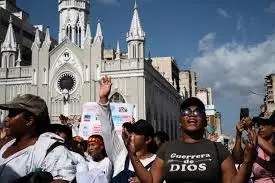
The Impact of Social Media and Technology
In recent years, social media and technology have emerged as critical tools for evangelical pastors in Venezuela, especially amidst the current crisis affecting the nation. With many congregants displaced or unable to gather in person due to social and economic challenges, virtual platforms have allowed pastors to maintain connections with their communities. The rapid adoption of technology has transformed how these spiritual leaders engage their flocks, ensuring that support and guidance remain accessible even during periods of isolation.
Pastors have harnessed the power of social media to create virtual services, which enable them to reach a broader audience. Platforms such as Facebook, Instagram, and YouTube facilitate live-streamed worship sessions, allowing congregants to participate from the comfort of their homes. These digital services have not only kept the faith alive but also provided a sense of normalcy in tumultuous times. Additionally, the interactive features of these platforms create opportunities for real-time engagement, enabling attendees to share prayer requests and connect with one another.
Online prayer groups have also proliferated, allowing community members to come together in a virtual setting. These groups encourage fellowship and mutual support, vital elements during a time when physical interaction is limited. Pastors often use group messaging applications like WhatsApp to facilitate communication among congregants, fostering a sense of community despite the crisis. This innovative approach ensures that no one feels forgotten or isolated, which can be particularly beneficial for individuals facing mental health challenges due to the current socio-economic conditions.
Furthermore, social media campaigns have been launched by evangelical leaders to spread awareness and provide assistance to those in need. By sharing information on available resources and support services, pastors not only uplift their congregations but also engage with a wider audience. Through these technological advancements, the potential for community connection remains strong, even in times of physical distancing.
Conclusion: The Lasting Legacy of Faith in Crisis
Throughout the exploration of the role of evangelical pastors in Venezuela amid ongoing crises, it has become evident that these spiritual leaders serve not only as conduits of faith but also as essential pillars of support for their communities. In times of political instability, economic hardship, and social unrest, the resilience demonstrated by these pastors has created an enduring legacy, providing both hope and comfort to countless individuals facing adversity. Their commitment to spiritual guidance, community service, and humanitarian efforts illustrates the profound impact of faith in challenging circumstances.
Evangelical pastors have harnessed their positions to address not only the spiritual needs of their congregations but also the pressing social issues confronting Venezuelans today. By organizing food drives, providing medical assistance, and facilitating educational programs, they have effectively contributed to alleviating the suffering experienced by many. Their ability to unite individuals and foster a sense of community has been pivotal in rekindling hope among those who may have otherwise succumbed to despair. This dual role of pastor and community leader has established a strong foundation for building resilience in the face of adversity.
As we reflect on the instrumental role played by these pastors, it is crucial to recognize the need for continued support and attention to their endeavors. The challenges that lie ahead suggest that their efforts will be more vital than ever. Encouraging involvement from external organizations and fostering partnerships can enhance their capacity to effect change. The lasting legacy of evangelical pastors in Venezuela stands as a testament to the power of faith to instill hope and mobilize action, illuminating a path forward for individuals and communities suffering in crisis.


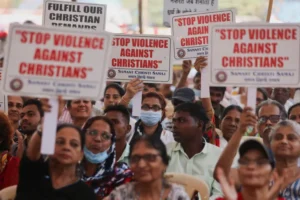

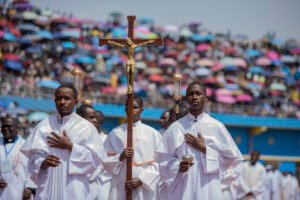

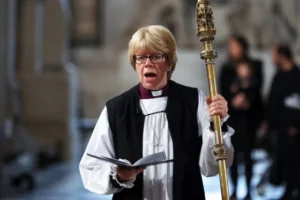
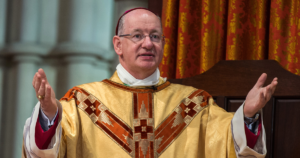

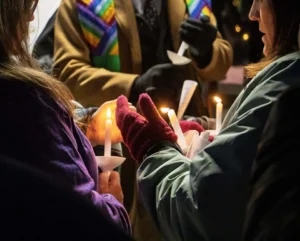


Leave a Reply
You must be logged in to post a comment.